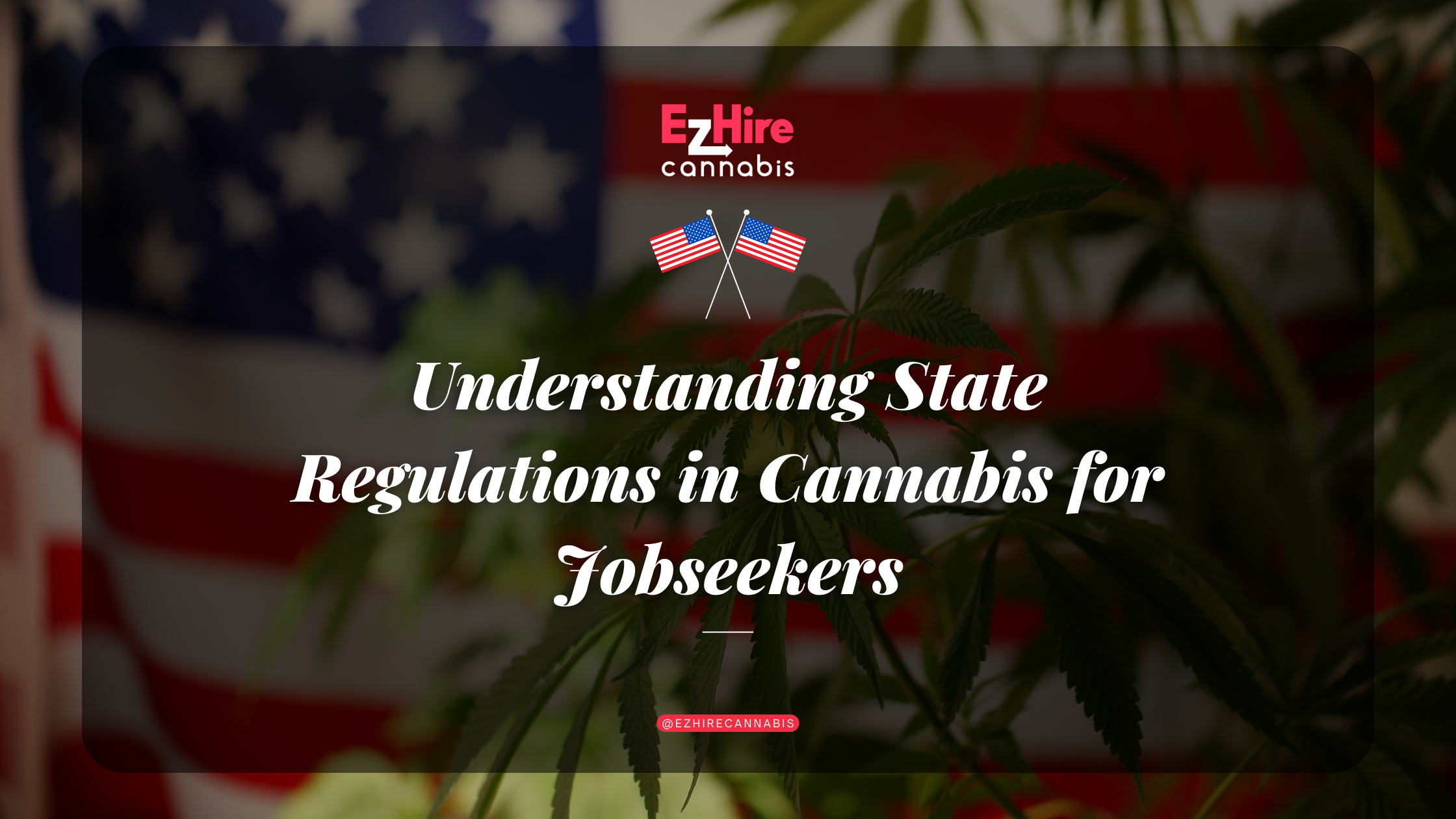
Understanding State Regulations in the Cannabis Industry for Jobseekers
Now, if you work, have worked, or operate a business in cannabis, you know how vital and challenging maintaining compliant processes and paperwork are...
Yet, there's a glaring shock to many jobseekers when they begin to learn the process of getting hired and the continued oversight required in the industry. That's why we encourage our candidates to become familiar with their individual state governing bodies and regulations before even getting a job so expectations for timeline and procedure are in check.
When it comes to pursuing a career in the cannabis industry, knowledge is power. One crucial area you can't afford to overlook is understanding your state's regulations. Each state has its own unique set of rules governing the cannabis market, and this knowledge can make or break your success in the industry.
Start by visiting your state's official cannabis regulatory website. Here, you can find detailed information on licensing, compliance, and regulations.
Below are some common requirements and considerations for badging in the cannabis industry:
-
Background Checks: Most states require employees and owners in the cannabis industry to undergo comprehensive background checks, including fingerprinting. This is to ensure that individuals with certain criminal convictions are not involved in the industry.
-
Residency Requirements: Some states have residency requirements, meaning that individuals must be residents of the state in which they are seeking employment or ownership in the cannabis industry.
-
Age Requirements: Employees and owners in the cannabis industry typically must be at least 21 years old, as this is the legal age for cannabis consumption in most states.
-
Badging Process: States often have a specific badging process that involves submitting an application, undergoing a background check, and paying associated fees. This process can vary in complexity and requirements.
-
Education and Training: Some states require employees to complete cannabis-specific education and training programs to work in the industry. This may include courses on cannabis laws, safety protocols, and product knowledge.
-
Compliance with State Laws: Compliance with state cannabis laws and regulations is crucial. Employees and owners must understand and adhere to the specific regulations in their state, which can cover areas such as security, labeling, packaging, and testing.
-
Financial Requirements: Depending on the state, individuals may need to demonstrate financial stability or provide evidence of funding sources to be involved in the cannabis industry.
-
Local Approval: In addition to state-level requirements, individuals may need to obtain approval from local municipalities or counties where they plan to operate a cannabis business.
-
Renewal and Ongoing Compliance: Many states require badge holders to renew their badges periodically and maintain ongoing compliance with state regulations. This may involve additional background checks and fees.
-
Specific Requirements: Some states may have unique requirements, such as additional licensing for specific job roles (e.g., budtenders, cultivation staff) or specific documentation for ownership and investment interests.
It's essential to consult the specific regulations and licensing authorities in the state where you are interested in working or doing business in the cannabis industry, as requirements can change and vary considerably. Always ensure that you are in compliance with both state and local regulations to avoid legal issues and penalties.



